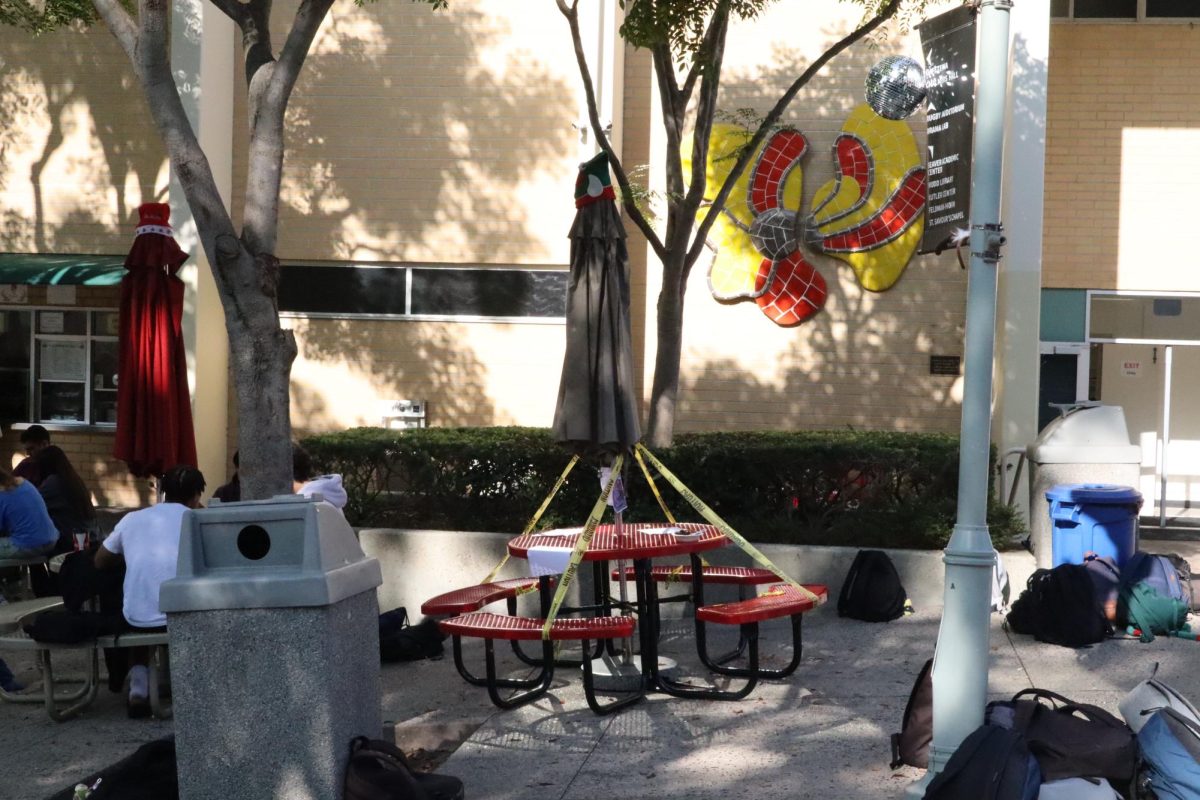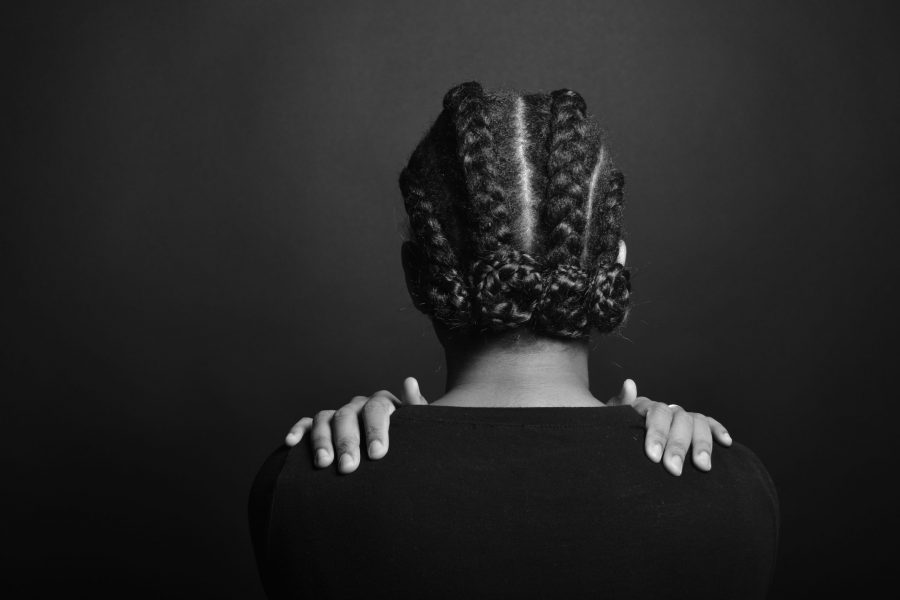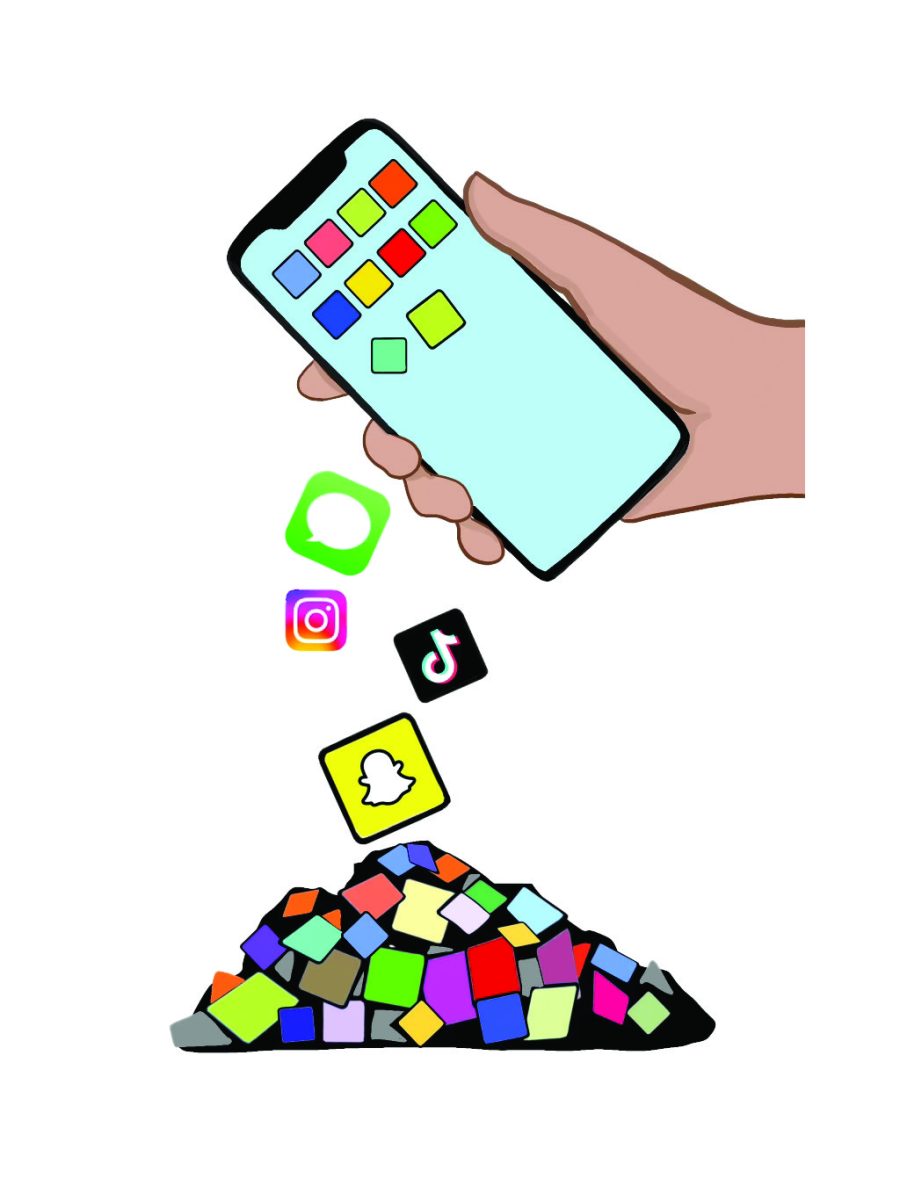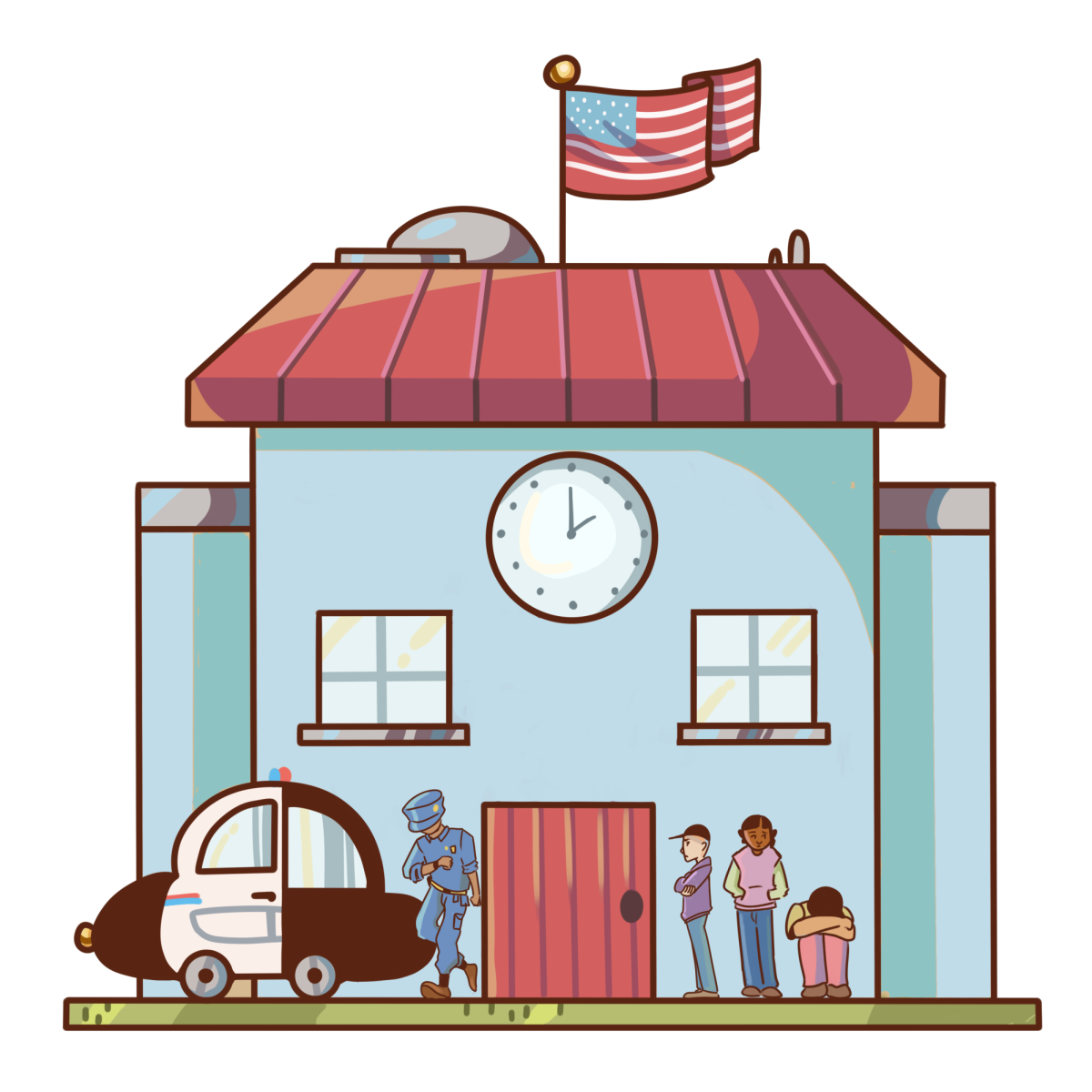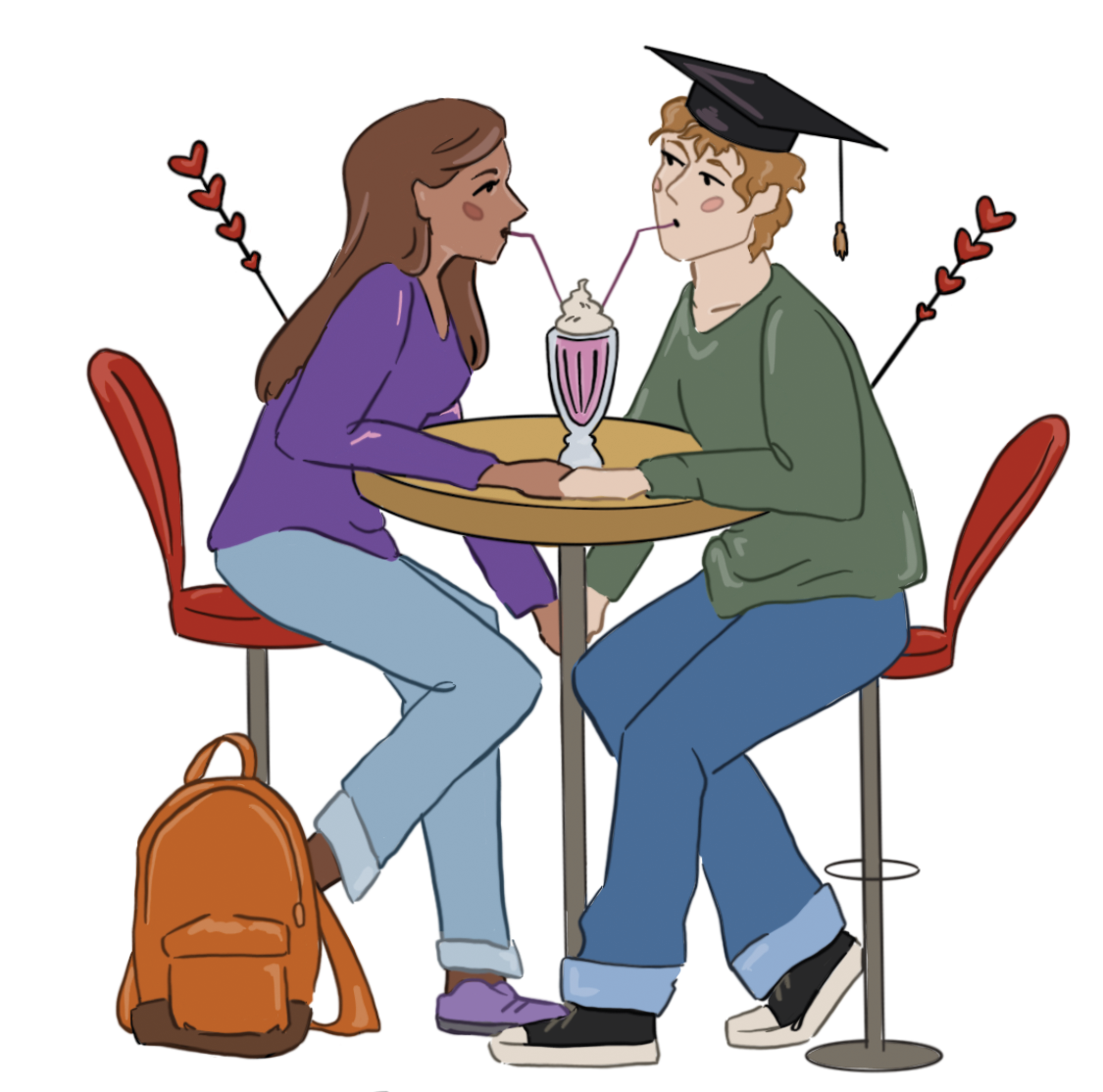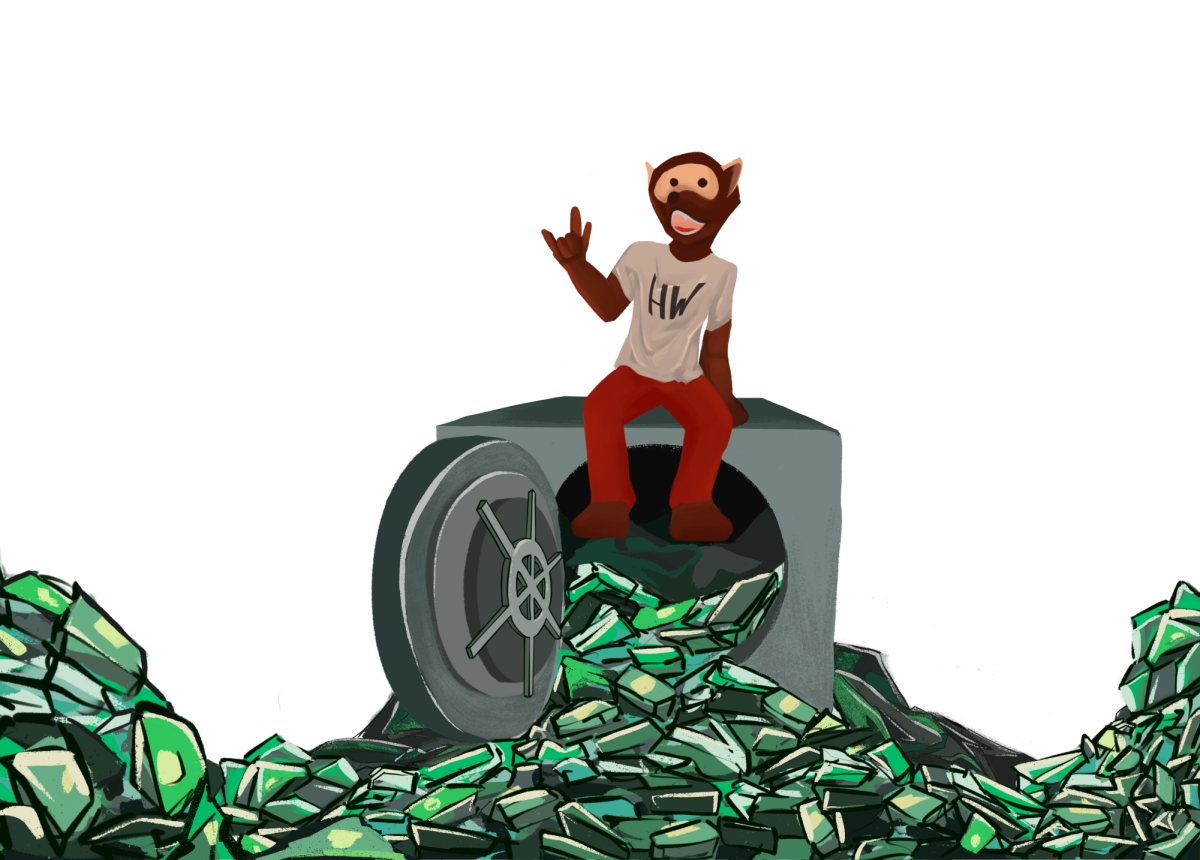When Makeda Neavill ’21 was in middle school, she associated straight hair with professionalism and maturity. With the texture of her hair suppressed, she believed that she would be treated more favorably by the individuals whose opinions mattered, she said. Though she stopped straightening her hair in ninth grade to prevent further heat damage, her natural hair pattern is now permamently altered.
“I was trying to be someone I wasn’t,” Neavill said. “There is nothing wrong with straightening your hair, it is just that my intention behind why I straightened it was so toxic. I only did it because I thought I would fit in more, and I didn’t do it for myself. It took me a little while, but I finally started to feel comfortable with myself and who I was, and my heat-damaged hair just started to bother me.”
The pressure for African American women and men to straighten their hair is not unique to Neavill, but rather is an issue that stems from the lasting impacts of slavery, she said. As black individuals became more integrated into white society following the ratification of the 13th amendment in 1865, they looked towards white beauty standards for ways to assimilate, one of which included smoothing hair texture, according to BBC.
“There are so many different stereotypes that come with black hair like ‘kinks aren’t cute,’ or ‘good hair versus bad hair,’ or being ‘nappy-headed,’” said Skylar Graham ’20. “I think black women straighten their hair [now] not because they want to be white, but because it is one less thing to be judged for when we walk out the door: one less thing that puts us at a disadvantage.”
During the Civil Rights Era, the afro-style increased in popularity, coinciding with a push for black individuals to accept their natural hair. In current times, there has also been a large shift in the ways that black people perceive their features, with more wearing their hair in its natural state and sporting historically black hairstyles such as braids and dreads.
“Social media has, in a way, normalized the woes and beauty of black hair for people who are not of color; braids, twists, dreads and afros are not this big mystery anymore,” Graham said. “There is a more positive narrative of black hair being promoted.”
To express her love for natural hair and its versatility, Neavill created an Instagram account dedicated to showcasing her different hairstyles.
“I started [the Instagram account] because I love how many different styles I can do with my natural hair,” Neavill said. “Sometimes, it is hard for me to articulate my thoughts and to truly show my personality, and my hair helps me feel fulfilled in my journey of expressing myself better. After spending so much time with my hair, I realized it was a huge part of who I was and I wanted to share that with the world.”
Recently, efforts to spread the idea of embracing natural hair are evidenced in television and movies. These themes have been reflected in “Hair Love,” a short film about styling black hair that won this year’s Academy Award for Best Animated Short Film, as well as in the “Barbershop” series and Netflix’s “Nappily Ever After.”
“Our hair is so unique in its versatility not only with the individual, but also with the range [of the hairstyles we can wear],” Josephine Amakye ’21 said. “It also is something that takes so long to appreciate [while] growing up, and the resolution of that internal conflict makes our hair that much more meaningful because it’s representative of accepting and celebrating our identity.”
As the world has grown more accepting of natural hair, many non-black people have attempted to adopt these styles. Celebrities like the Kardashians, who have worn braids, and designers like Marc Jacobs, who had non-black models wear colorful dreadlocks during his New York Fashion Week show in 2016, have been accused of cultural appropriation.
“I believe that people are entitled to whichever style they like,” Holden McRae ’20 said. “However, I believe it’s also important to recognize the cultural meaning behind certain hairstyles. It definitely becomes a problem whenever someone takes from a culture without having to experience the same discrimination that that culture faces. I think that hair is a difficult subject to categorize because a particular style is often simply a chosen aesthetic, [but] black people are often the only ones who face discrimination because of it.”
Muthee Githara ’20 said he believes that, in order to take on a specific style, individuals must understand the meaning behind it.
“We are not a monolithic culture where we all have to take a stance against one thing like cultural appropriation when it comes to things like cornrows, dreads and edges,” Githara said. “[However], the person who borrows from the culture must pay homage to where the hairstyle came from, not take claim for inventing a hairstyle because they are the first non-black person to wear it.”
Although society has made strides in this area, black people continue to face discrimination because of their hair. In January, DeAndre Arnold, a black teenager from Texas, was told that he would not be permitted to walk his school graduation unless he cut off his dreadlocks, according to The Hill.
According to ABC News, Andre Johnson, a New Jersey high-school wrestler, and Faith Kennedy, an 11-year-old girl from Louisiana, have also had their struggles shared across the internet during the past two years.
“People shouldn’t be punished or judged for having a particular hairstyle, and it’s a shame that this type of discrimination still occurs,” McRae said.
In order to spread awareness about the hair discrimination that black people continue to face, Arnolds attended the 2020 Oscars with the short film Hair Love to promote the CROWN Act, according to Refinery 29. The CROWN Act stands for “Create a Respectful and Open World for Natural Hair” and was proposed in order prevent hair discrimination in schools and places of work, according to The CROWN Act’s website.
“Your hair is the most irrelevant thing to your learning and that of your classmates,” Amakye said. “It’s targeting and distracting towards young children who not only cannot stand up for themselves but cannot understand why they are being treated this way. If some black kids already feel afraid to style their natural hair without any criticism because of its inherent uniqueness, how much more [afraid will they feel] now that it’s an actual issue at their school? No kid should be expected to perform well in such a hostile environment.”



